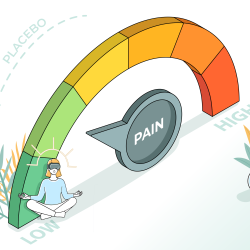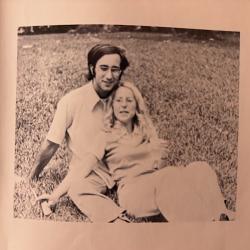Biological Sciences and Computer Science Undergraduates Win Prize for Poster at UTeach Conference
Precious Azike and Joshua Pooranmal won an award for their poster discussing what they learned while teaching and observing a classroom as part of the Terrapin Teachers program
Two University of Maryland undergraduates won a prize for their poster at the 12th annual UTeach Conference held in Austin, Texas, in May 2018 for their work in the Terrapin Teachers program.
 “I’m extremely impressed by the work of all of Terrapin Teachers’ talented students,” said Cell Biology and Molecular Genetics Professor Caren Chang, who became co-director of Terrapin Teachers in July 2018. “The poster presented by these two students reflected our program’s work on issues of social justice and classroom equity. I’m so pleased the students raised these important topics at the UTeach Conference where their poster was honored with this prize.”
“I’m extremely impressed by the work of all of Terrapin Teachers’ talented students,” said Cell Biology and Molecular Genetics Professor Caren Chang, who became co-director of Terrapin Teachers in July 2018. “The poster presented by these two students reflected our program’s work on issues of social justice and classroom equity. I’m so pleased the students raised these important topics at the UTeach Conference where their poster was honored with this prize.”
Terrapin Teachers is a UMD program that aims to increase the number of highly qualified secondary science and mathematics teachers. In addition to earning a science or math degree, students who complete the program are eligible for certification as a middle or high school teacher. Based on the national UTeach model, Terrapin Teachers is a joint initiative between UMD’s College of Education and College of Computer, Mathematical, and Natural Sciences.
Biological sciences junior Precious Azike and computer science senior Joshua Pooranmal created their poster, “Developing Critical Perspectives in Step 2: Maintaining an Open Disposition While Shifting from Student to Teacher,” to showcase how Terrapin Teachers helped them become better teachers through self-reflection.
The students drew on their experiences observing and then teaching a class at Nicholas Orem Middle School in nearby Hyattsville, Maryland, as part of the Terrapin Teachers course TLPL 102: “Inquiry Teaching of STEM in Middle Schools.” Azike taught an eighth-grade science class about rising global temperatures. Pooranmal taught a seventh-grade math class about mathematical expressions and equations.
After teaching their respective classes, Azike and Pooranmal reflected on how they performed in the classroom. They also examined how teachers’ unconsciously held assumptions could lead them to make mistakes while teaching.
“Through this class, I was able to develop a critical perspective on myself and how I interact with students,” Pooranmal said. “For instance, I noticed that I unconsciously favored vocal students, which means I didn’t help the students who didn’t speak. Now I recognize what I did wrong, and it helps me be a better teacher.”
Because most UTeach programs do not include a component on overcoming unconscious assumptions, Pooranmal and Azike used their poster to spread awareness of the Terrapin Teachers course and help other programs integrate similar themes into their curricula.
“I learned that there is no such thing as a perfect classroom because all classes are unique,” Azike said. “I also learned that making a mistake doesn’t mean that it’s over. Rather, it means I can learn from the situation and develop myself to adjust to future situations and scenarios.”
Azike, who is also a Banneker/Key Scholar, came to Terrapin Teachers through her advisor Francisca Saavedra, who is assistant director of the undergraduate biological sciences program.
“I was pouring my heart out to her during an advising meeting because I was trying to figure out what to do with my future,” Azike said. “Francisca knew I was interested in education, and she recommended that I try out Terrapin Teachers.”
Pooranmal discovered Terrapin Teachers when trying to fulfill his degree requirements as a computer science major.
“To graduate as a computer science major, you have to take 12 credits elsewhere,” Pooranmal said. “I wanted to do something meaningful and I’ve always liked working with kids. A mentor told me he has always seen me as a teacher, so I decided to try Terrapin Teachers.”
Thanks to Terrapin Teachers, Pooranmal found that working in education is extremely meaningful for him.
“It’s so fulfilling to know that you’ve made an impact on someone’s life,” Pooranmal said. “I grew up in the Bronx with violence and poverty, but I had good people around me who made positive impacts on my life. Because of that, I feel it’s necessary for me to make an impact in other people’s lives, and children are at the best age for that.”
Azike hopes to become a teacher in her hometown in the future.
“I came from the Baltimore County Public Schools system, and I know there are a lot of students like me who could benefit from a strong mentor,” Azike said.
###
Media Relations Contact: Irene Ying, 301-405-5204, zying@umd.edu
University of Maryland
College of Computer, Mathematical, and Natural Sciences
2300 Symons Hall
College Park, MD 20742
www.cmns.umd.edu
@UMDscience
About the College of Computer, Mathematical, and Natural Sciences
The College of Computer, Mathematical, and Natural Sciences at the University of Maryland educates more than 9,000 future scientific leaders in its undergraduate and graduate programs each year. The college’s 10 departments and more than a dozen interdisciplinary research centers foster scientific discovery with annual sponsored research funding exceeding $175 million.







